|
The evolutionary process of natural selection helps the fittest to survive. In the past 18 months, we’ve all become acutely aware of this relentless process as it played out in the coronavirus – spawning fitter variants at a rate that is hard to keep up with.
But there is another, lesser-known evolutionary process called “unconscious selection”. This is where human interactions with the environment have accidental evolutionary effects. An example is delaying the second COVID jab by a couple of months. A single dose of Pfizer or AstraZeneca can have an effectiveness against the now-dominant delta variant of as low as 33.5%. This means, in delaying the second dose, the UK government may have inadvertently given delta a window of opportunity to spread and mutate, according to an expert in evolution and global health.
It would be nice to think that a simple change to our diets could protect us from COVID-19, which is perhaps why there was so much excitement when a recent study found a link between a plant-based diet and a lower risk of getting moderate-to-severe COVID. But, if it sounds too good to be true …
|
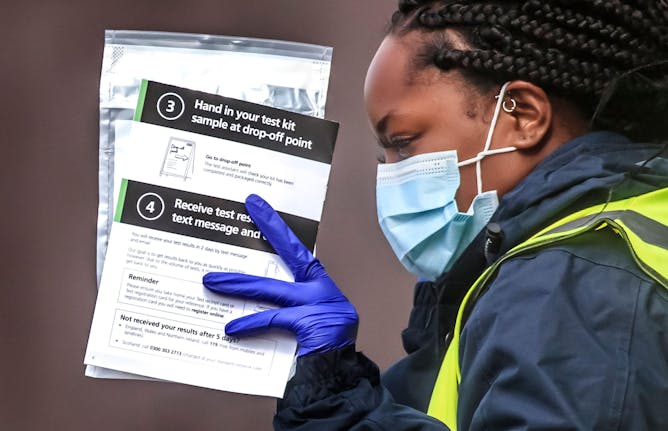
A woman hands out self-test kits at a COVID testing centre in Bolton, England.
PA Images/Alamy Stock Photo
Jonathan R Goodman, University of Cambridge
Why it's important to pay attention to evolutionary theory when considering population health.
|
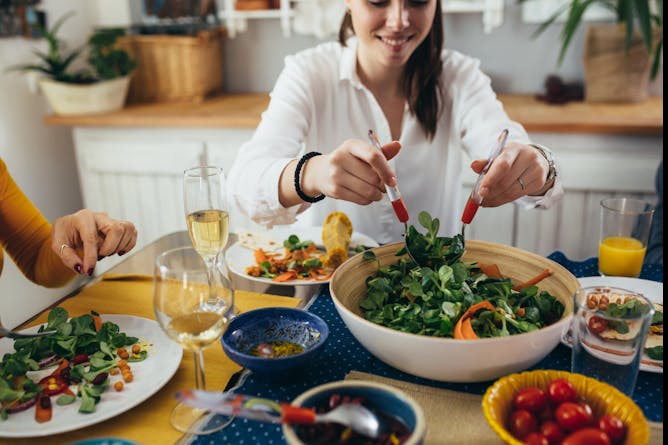
Dejan Dundjerski/Shutterstock
Duane Mellor, Aston University
A new paper suggests that plant- and fish-based diets lessen the chance of developing severe symptoms – but hold off from becoming vegetarian or pescatarian for now.
|
Politics + Society
|
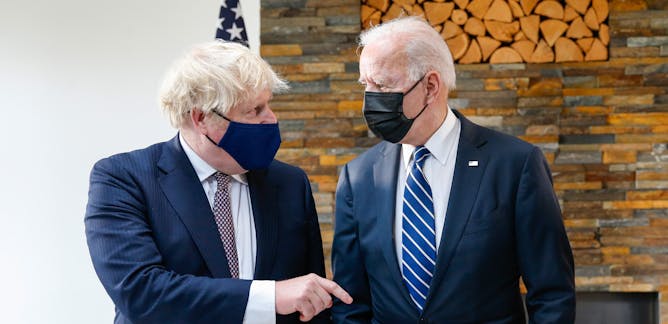
Martin Farr, Newcastle University
Eighty years after Churchill and Roosevelt established the Atlantic Charter, Biden and Johnson have pressed the 'reset' button.
| |

Simon Chadwick, EM Lyon; Paul Widdop, Leeds Beckett University
Much of the money that pays for the competition is spent to build global brands.
|
|
|
Health + Medicine
|
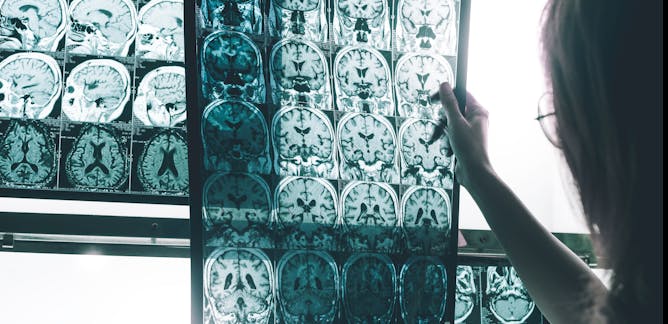
Eleftheria Kodosaki, Cardiff University; Aurora Veteleanu, Cardiff University
The first drug targeting Alzheimer's disease has been approved in 20 years – but its approval isn't based on substantial evidence.
| |
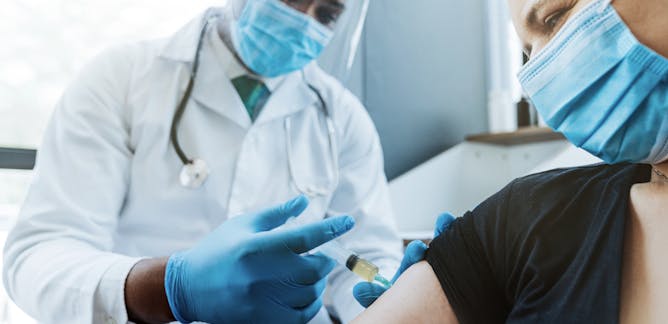
Dr Velisha Ann Perumal-Pillay, University of KwaZulu-Natal
A successful rollout isn't just about the physical points where people can get the vaccinations. It's also about having a trained workforce to administer them.
|
|
|